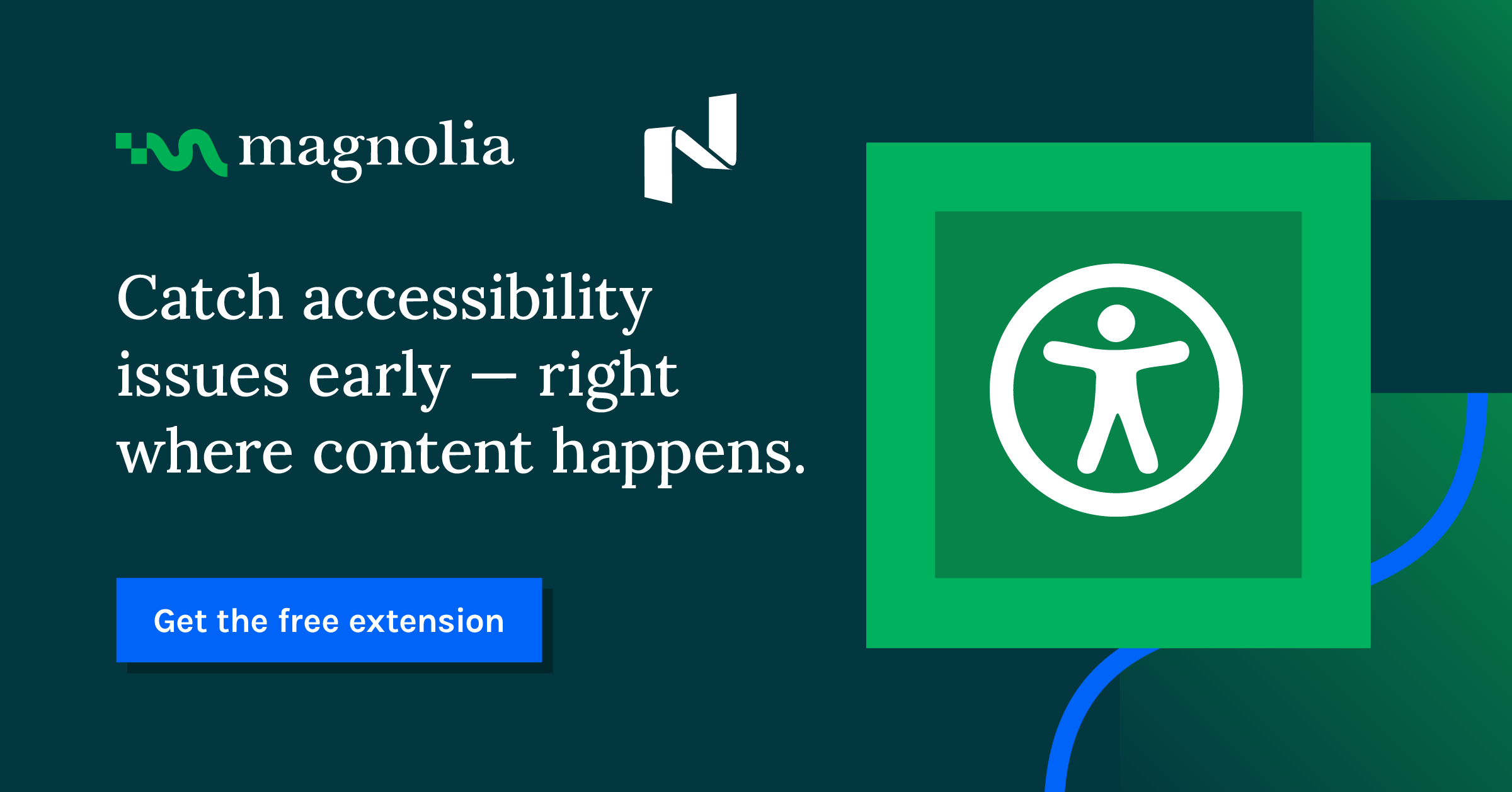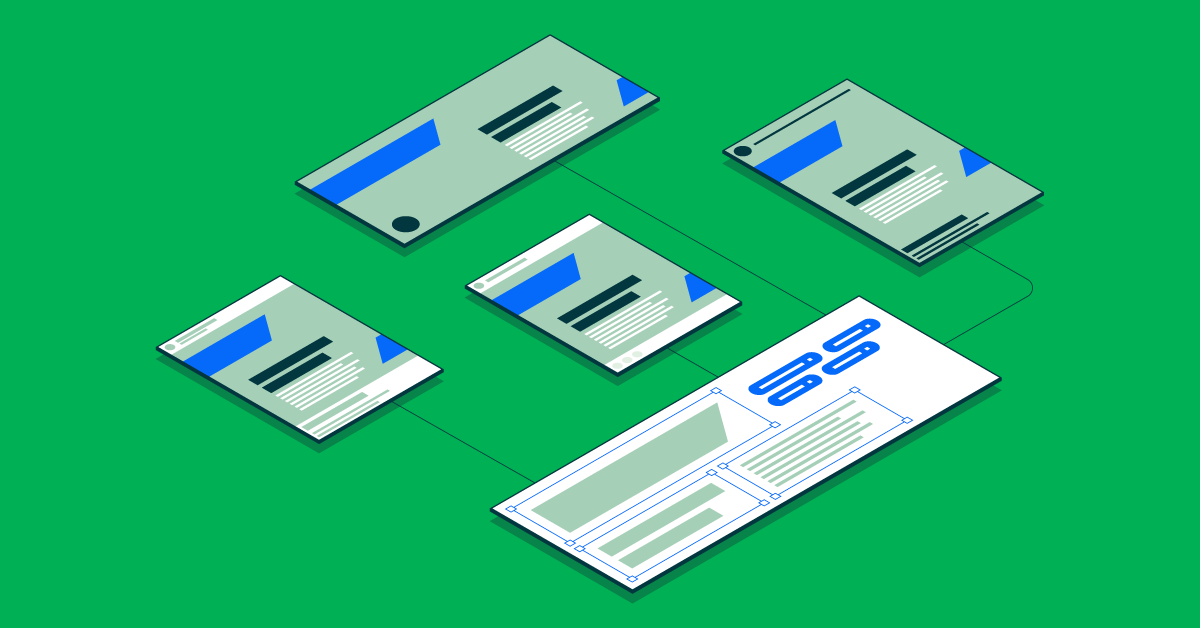- Jul 30, 2025
- --
The European Accessibility Act Is Here. Does It Apply to Your CMS?
Experience Magnolia in action
Experience Magnolia's key features firsthand in an interactive product tour.
Take a tour nowAs of June 28, 2025, the European Accessibility Act (EAA) is in full effect. This landmark legislation mandates that many products and services, especially consumer-facing websites, must be accessible to people with disabilities. For digital experience leaders, this raises a critical question: What does this mean for the B2B tools we use to build those experiences? While there has been much confusion on this topic, the answer is clear. This article will explain the EAA’s scope, clarify that it does not apply to back-office tools like Magnolia, and share how we are proactively embedding an accessibility-first approach into our platform anyway.
What the EAA Means for Digital Services
The EAA aims to harmonize accessibility rules across the EU, ensuring that services like e-commerce, banking, and transportation websites are usable by everyone. This means digital services must conform to standards like the Web Content Accessibility Guidelines (WCAG) 2.1 AA. For users, this translates to tangible benefits, such as high-contrast design for the visually impaired or full keyboard and screen reader compatibility for those with severe vision impairments.
The Key Question: Does the EAA Apply to B2B Authoring Tools?
This has been a point of significant confusion. However, a careful reading of the legislation confirms that the EAA does not apply to B2B authoring tools like the Magnolia CMS back office, provided the tool is not sold directly to consumers.
The act’s legal text specifies its scope in two key articles:
Article 2 states the directive applies to services "provided to consumers."
Article 3 defines a 'consumer' as someone acting outside their "trade, business, craft, or profession."
Since a CMS is a professional tool used for business purposes, it falls outside the direct scope of the EAA.
However, there is a critical distinction:
The public-facing websites and digital experiences you create with Magnolia are absolutely covered by the Act. Magnolia has always supported the creation of fully accessible, WCAG-compliant public websites, so you can meet your EAA obligations with confidence.
Beyond Compliance: Why We’re All-In on Accessibility
Even though our authoring interface is not legally bound by the EAA, Magnolia is fully committed to accessibility. We believe accessibility is a fundamental component of a great user experience for everyone. That’s why, starting last year, we began building a new, accessibility-first design system from the ground up.
This initiative will result in a completely new, fully accessible UI for Magnolia, which we are excited to begin rolling out later this year. This isn't just about compliance; it's about leading the way and doing the right thing for all our users.
Our Partners Embrace Accessibility, Too
This commitment extends to our partner ecosystem. We're thrilled that our partner Noice has released the Easy Accessibility extension, now available for free on the Magnolia Marketplace. This powerful tool allows authors to check for accessibility issues directly within the editor, catching potential problems long before they are published and enabling site-wide compliance scans.
Conclusion: A More Accessible Future
The European Accessibility Act is a major step forward for digital inclusion, ensuring consumer websites and services will improve for everyone. For Magnolia users, the message is simple:
The public-facing websites you build with Magnolia are covered by the EAA, and our platform fully enables you to create compliant experiences.
While the Magnolia authoring UI itself is not in scope, we are proactively re-engineering it to be fully accessible, enhancing the experience for every author.











